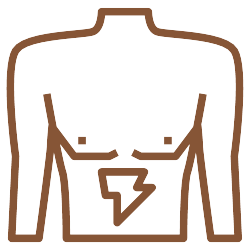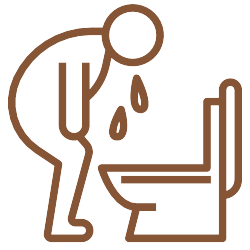
How can I help?
But for some of us, gluten is a nuisance. The protein can damage the intestine lining, prevent absorption of nutrients and cause a range of unpleasant symptoms. Gluten intolerance – or coeliac disease – can be diagnosed at any age from infancy to old age, but is most commonly recognised in children and young adults. Some patients report feeling unwell in a vague way that is difficult to pinpoint, while others experience mild symptoms for months or even years before seeking treatment. Conditions such as anaemia and osteoporosis caused by the inability to absorb vitamins and minerals can also be an indicator.

Diarrhoea

Nausea & Vomiting

Bloating

Weight loss

Blood tests are most often used to diagnose coeliac disease and analyse food absorption. Often, an endoscopy will be used to confirm the diagnosis and assess the levels of existing damage to the small intestine.
Following diagnosis, the most effective treatment is to follow a gluten-free diet. Dr Bansi will provide help on advice on maintaining a balanced diet without wheat and other cereals. He can also refer you to a dietician for further support, should you need it.
Get in touch
From well-equipped and convenient locations across West and central London, Devinder and his expert team provide unparalleled quality of care for the full range of GIT-related conditions.




How can I help?